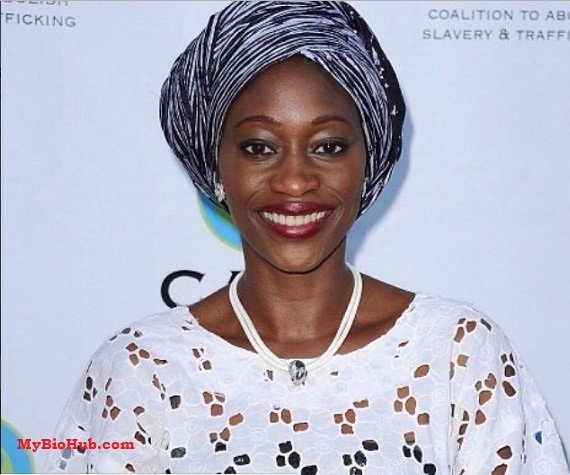Hafsat Abiola is a Nigerian human rights activist and founder of the Kudirat Initiative for Democracy (KIND), which seeks to strengthen civil society and promote democracy in Nigeria.
She was born on August 21, 1974. She is the eighth child of Nigeria’s inaugurated President-elect, the late Chief Moshood Abiola, who was put in prison by the dictator Gen. Sani Abacha for treason after declaring himself president. He later died under detention in 1998. Her mother, Alhaja Kudirat Abiola (killed in 1996), was murdered during a demonstration for the release of her husband in 1996.
Hafsat graduated from Phillips Academy, Andover, in 1992 and from Harvard College in 1996. She received an honorary doctorate from Haverford College.
She also founded the China-Africa Bridge and China Africa Forum, which promotes mutually beneficial cross-cultural collaboration between China and Africa, with a specific eye on women’s contributions to the economy. She is also a Councilor at the World Future Council among 49 other well-known personalities.
If You Love Stories and Facts, Join this Whatsapp Channel
READ: Abike Dabiri Biography
In 2000, Hafsat Abiola was honored as a Global Leader of Tomorrow at the World Economic Forum in Davos, Switzerland. In 2003, she was elected as a Fellow of the Ashoka: Innovators for the Public in recognition of her international status as a social entrepreneur. In 2006 she was nominated to be a founding councilor at the World Future Council. She was also awarded Youth Peace and Justice Award of the Cambridge Peace Commission (1997), Woman to Watch for Award (1999), State of the World Forum Changemaker Award (1998), Goi Peace Award (2016).
In 2008, the Europe-based “A Different View” chose Abiola to be one of the 15 Champions of World Democracy alongside Martin Luther King Jr., Nelson Mandela, Corazon Aquino, and Sima Samar and others. She is an advisory council member at the Fetzer Institute as well as the Nuclear Age Peace Foundation.
In 2015 she was chosen to be one of 21 women who met for a conference at Harvard University Kennedy School of Government funded by Hunt Alternatives. The group included Judy Thongori from Kenya, Fauzia Nasreen from Pakistan, Esther Ibanga and Ayisha Osori also from Nigeria.



